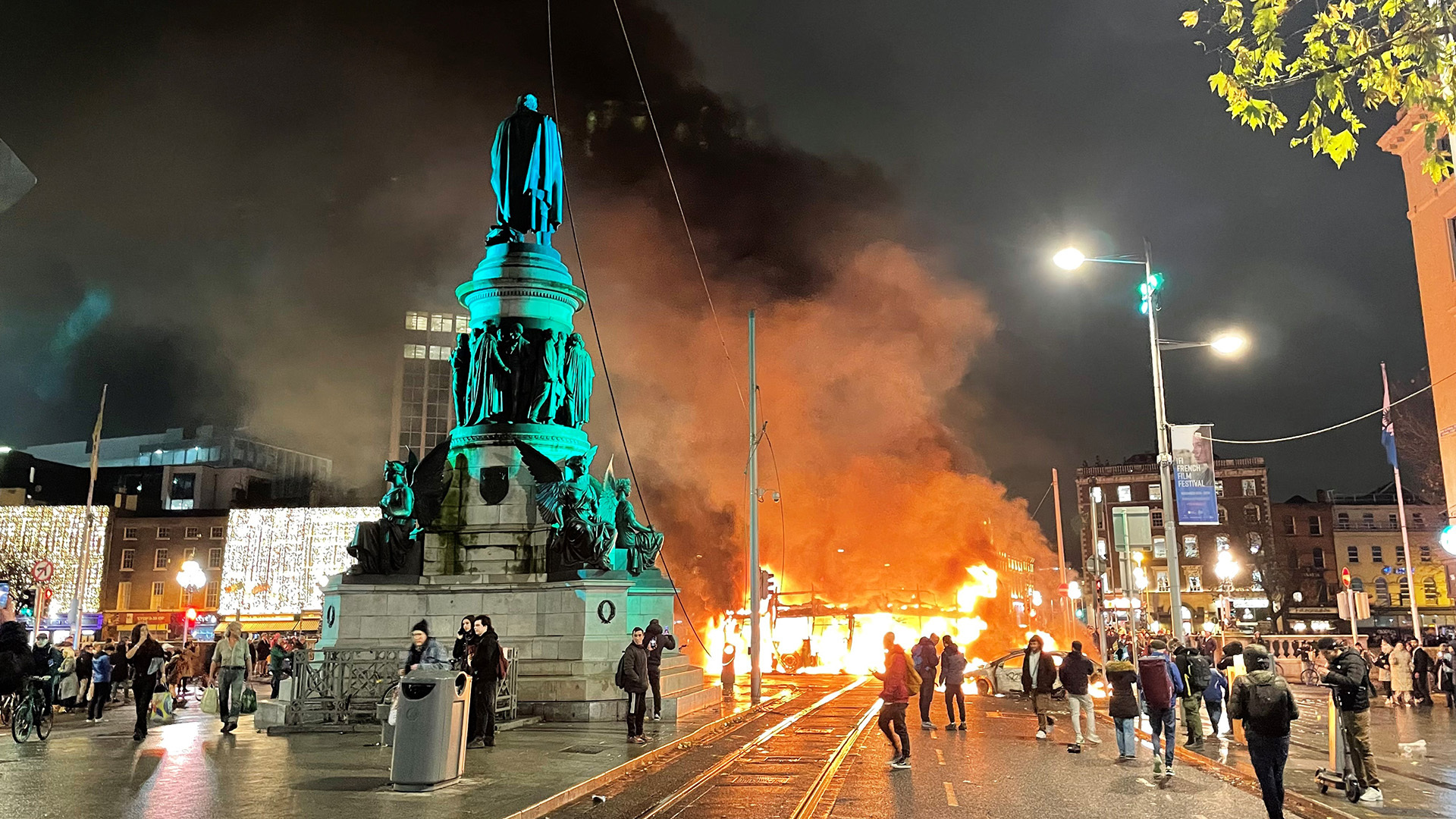
Ireland’s proposed hate speech law receiving fierce backlash
Media Landscape
See who else is reporting on this story and which side of the political spectrum they lean. To read other sources, click on the plus signs below.
Learn more about this dataLeft 0%
Center 0%
Right 100%
[LAUREN TAYLOR]
Ireland’s government is proposing “hate speech laws” in response to anti-immigration protests and riots in Dublin. Last week, riots erupted following the stabbing of three children and a teacher outside an Irish Catholic school. The suspect, a man in his late 40s originally from Algeria but now an Irish citizen, has lived in Ireland for the last 20 years and is currently hospitalized.
After the attack, rumors about the suspect’s immigration status circulated on social media, encouraging those upset about Ireland’s immigration laws to protest. Rioters converged on central Dublin, causing fires and damage. Out of nearly 500 protestors, 34 people were arrested.
In response, Ireland’s Prime Minister announced plans to modernize hate speech laws.
[LEO VARADKAR / IRELAND’S PRIME MINISTER]
“I think it’s now very obvious to anyone who might have doubted us that our incitement hatred legislation is just not up to date. It’s not up to date for the social media age. We need that legislation through, and we need it through in a matter of weeks because it’s not just the platforms that have a responsibility here, and they do. It’s also the individuals who post messages and images online that stir up hatred and violence. We need to be able to use laws to go after them individually.”
[LAUREN TAYLOR]
Ireland’s proposed hate speech bill, titled “Criminal Justice (Incitement to Violence or Hatred and Hate Offences) Bill,” introduced in November 2022, is currently progressing through the Irish Parliament. If enacted, the bill would prohibit the incitement of violence or hatred against a person or group based on specified characteristics.
The bill also allows a judge to issue a search warrant for an alleged perpetrator’s property if there is enough evidence related to a hate speech crime. Critics of the bill find it alarming as it does not define “hate.”
[SENATOR SHARON KEOGAN]
“Section 9 establishes that someone can be put into jail for having incited violence without actually having incited any violence. This is clown-world stuff. The law is there to protect people. What we have here is draconian legislation which can put someone in jail where not one single person has been harmed or victimized.”
[LAUREN TAYLOR]
In the United States, billionaire businessman Elon Musk has expressed concern about the legislation, describing it as “very concerning” and a “massive attack against freedom of speech.” Musk has vowed legal action to try and stop the bill from becoming law.
Meanwhile, in the wake of Ireland’s riots, UFC champion and Ireland native Conor McGregor is reportedly under investigation by the Irish police for comments he posted on ‘X’ criticizing the Irish government just before and after the stabbing attack.





